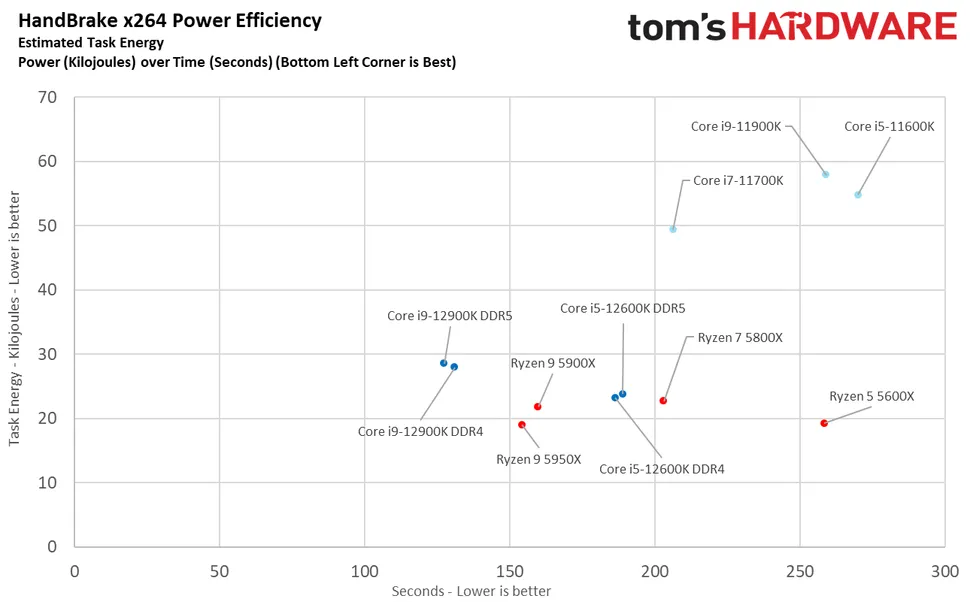larkspur
Distinguished
Should I spend ~$90 more for a 12600k system for a few % points in gaming? Should I spend ~$80 more for a 5600x system for a few % points in gaming? I mean, we could do this all day. We could cheapen-up the motherboards, talk about the fact that the difference with realistic mainstream GPUs (vs the 3090 used in the benches) will essentially create a tie between all of these discussed CPUs, but let's not:The 12600k does perform better and has PCIe 5 and DDR5 support. Its less efficient, but still manageable heat load. If both were the same money, I would consider the 12600k better. But they aren't the same price once you factor in platform cost. Not even close.
[clip]
As I game and I don't think I would miss the few percent performance extra from the 12600k, and I'd rather have the extra money in my wallet upfront, and the lower power consumption would be a benefit to your wallet a bit too. I think if B series boards come out for LGA1700 for $75+ with a VRM that can tolerate a 12600k, I would totally reconsider. But as it sits, 5600x still wins in my book.
PCPartPicker Part List: https://pcpartpicker.com/list/kNxd3Z
CPU: Intel Core i5-11400F 2.6 GHz 6-Core Processor ($208.35 @ MemoryC)
Motherboard: ASRock B560 Steel Legend ATX LGA1200 Motherboard ($142.99 @ Newegg)
Memory: Team T-Create Expert 16 GB (2 x 8 GB) DDR4-3600 CL18 Memory ($59.49 @ Amazon)
Total: $410.83
Prices include shipping, taxes, and discounts when available
Generated by PCPartPicker 2021-11-13 13:44 EST-0500
The value proposition is going to get pretty obvious once we get the H-series and B-series AL boards. The mystery is the i5-12400. If it performs better than the 11400 for ~$200 it'll be a slam-dunk for mainstream gaming.



